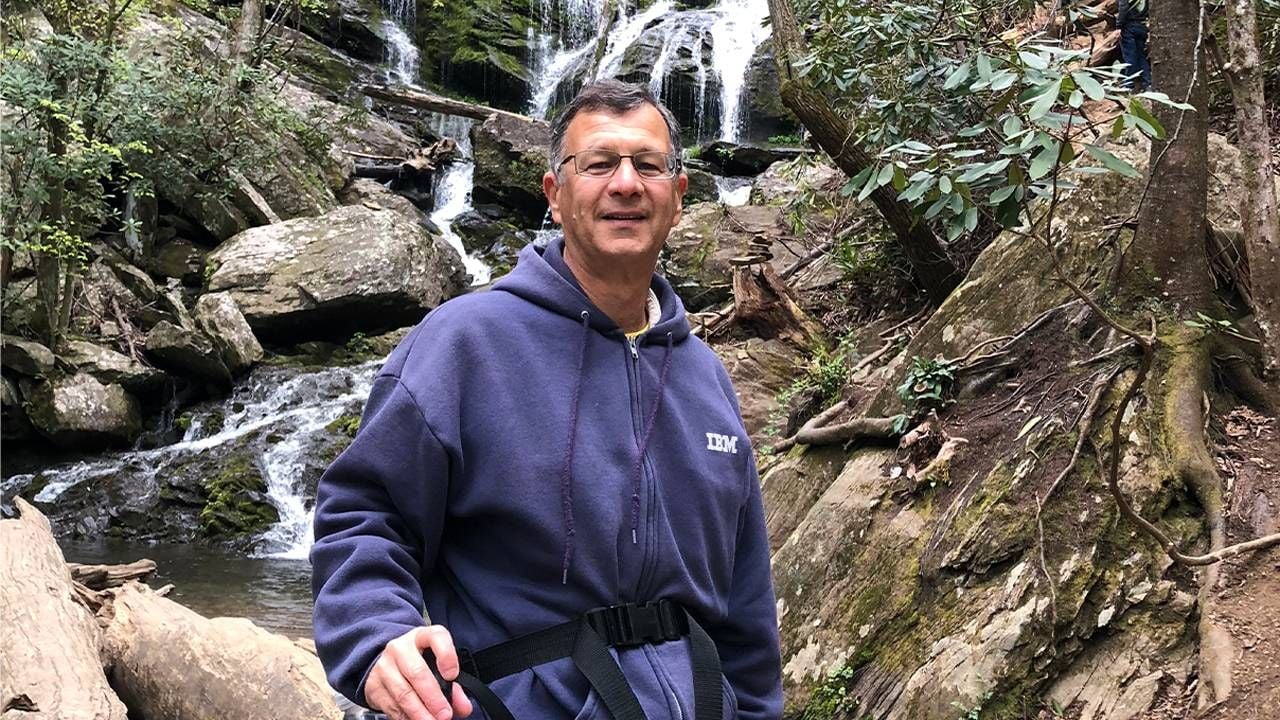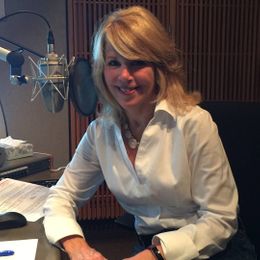Want to Know Your Biological Age? Buyer Beware.
No matter what age tests reveal, experts say the real key to longevity is exercise
When 66-year-old Maurice Frank of Asheville, North Carolina, opened the email last spring from InsideTracker, a health analysis and biological age testing company, he expected good news. "I thought I would come in three to five years younger," he said.

Instead, when he saw the results, he blurted out a four-letter word, "which I normally don't do." His biological age was 3.3 years older than his chronological age. "I was shocked," he remembers. "I thought I was leading a very healthy lifestyle, with exercise and diet."
Concerned, Frank took the lab analysis to his doctor. "And he literally laughed. He said, 'You're okay, don't worry about this.'"
"I was shocked. I thought I was leading a very healthy lifestyle, with exercise and diet."
Physician and Princeton University molecular biologist, Dr. Daniel Notterman, thinks Frank's primary care physician is right. "I have a healthy skepticism about this measuring biological age because I wonder what people are supposed to do."
Notterman first heard about how companies were marketing biological age testing direct-to-consumers during a visit to his mother-in-law's house in a Florida retirement community. Some companies use blood or saliva samples. Others are selling what they claim are more sophisticated measurements, like assessing telomeres.
"She gave me a brochure about some guy who would come to speak who represented a telomere measurement company," he said, chuckling. "They would measure your telomeres and then they have various elixirs that would help you lengthen your telomeres."
Think of telomeres as a kind of protective cap at the end of a strand of DNA. As we age, our telomeres shorten. Trauma, stress and smoking can also shorten telomeres. Even a serious case of COVID can shorten telomeres.
Notterman, who has published research into the biology of aging, says "no potion or drug" can lengthen telomeres.
How Bio Age Tests Work
For $499 TruDiagnostic will send a TruAge "Complete Collection" kit to your doorstep. It includes two lancets, with which to collect your blood, a blood collection card to apply the blood smear, an alcohol wipe and a band-aid. An illustrated guide leads you through the steps.
Elysium Health's "Index" test, also $499, is a saliva collection kit. Both companies analyze DNA methylation, a biomarker in which scientists examine the patterns of atoms, or methyl groups, on genes. Methylation can turn a gene off or on.
The bio age companies then put your methylation results into a computer algorithm to come up with your biological age. If your results are like most people, your biological age will be within a few years, plus or minus, of your chronological age.
Dr. Morgan Levine, a Yale PhD. research scientist, who developed the latest bio age test at Elysium and authored the book, "True Age," says giving someone information about how they're aging can be a valuable catalyst for making changes.
"In the aging field, we really like to talk about the modifiability of this," she said. "Yes, everyone is going to age, but we like to think that rate is modifiable and people have a lot of control over it."
Levine noted that advances in technology that measure cells coupled with "the boom in data science and artificial intelligence" has made biological age testing more precise.
"We're not just looking to get to some magic number in terms of longevity," she said. "The goal is healthier later life."
Skepticism About the Tests
But Notterman argues that you don't need to spend $500 to do what most of us already know we should be doing. "There's nothing you can do about it other than the things you should be doing anyway: exercise, eat well, don't smoke, don't work all the time, don't fight with your partner."
Dr. Daniel Belsky, an assistant professor of epidemiology at Columbia's Aging Center in New York, is even more blunt about consumer-facing biological testing. "I don't think it can do what it says it can do."
Belsky, who developed a test at Columbia to measure the pace of aging for public health surveillance research, is skeptical about bio-age testing, saying "We rush these metrics out because they are exciting and pretty exotic. They're cool. But I'm not exactly a cheerleader of this technology."
To age with vibrance and resilience, make exercise a consistent part of your daily routine.
Belsky's skepticism, like Notterman's, is partially focused on the fact that using different measurement methods produces different results. Both scientists said that analyzing telomere length, DNA methylation, CRP or albumin levels will give you a different biological age.
And while most assume that if there is a gap between their chronological and biological age, it happened in their later years, Belsky argues that the gap could have appeared at any point in your life. And the biological tests can't tell you that.
"I wouldn't pay for this," Belsky said, "and if it was given to me for free, I wouldn't take it too seriously."
The True Anti-Aging Elixir
There is one "magic potion" that all three scientists did agree on.
To age with vibrance and resilience, make exercise a consistent part of your daily routine. Studies on epigenetics and exercise, including a clever 2014 study out of the Karolinska Institute in Sweden, where participants pedaled a bike with one leg, find that DNA methylation patterns are changed by routine exercise.
Levine, the developer of the bio test at Elysium said, "Exercise is, to me, the miracle intervention. People have shown that it reverses disease, it prevents disease, and we know that it slows the rate at which we age."
She added that when people who know she's an age researcher ask her which supplements she takes, "I always say, 'If you don't exercise, I don't know why you're so focused on that because it's free and it works better than anything else we have.'"
Maurice Frank has always been active, playing pickleball and lifting weights. But the analysis from InsideTracker prompted some changes in his life. He's skipping the scones at the coffee shop more often and driving by the craft beer brewery instead of stopping. And he's dropped 12 pounds in four months.
"I didn't go cold turkey," he says. "But I actually surprised myself that I was able to make these changes."
Editor’s note: An earlier version of this article incorrectly stated that Dr. Belsky was invited to join Elysium Health's Scientific Advisory Board. Elysium spokesperson Whitney Christopher confirmed that although there were discussions concerning SAB participation early in 2022, Dr. Belsky was not invited to join. We apologize for the error.


